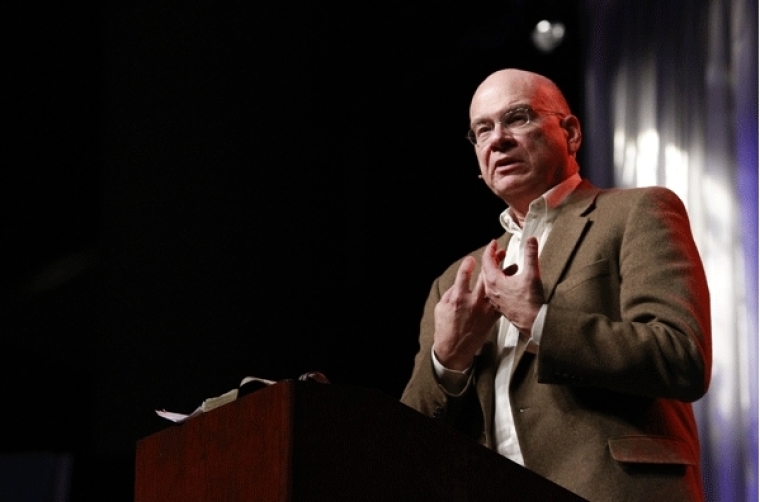
With coronavirus hitting finances and yet, at the same time, increasing the amount of need, churches will need to find ways to serve their communities with less than they're used to, says Tim Keller.
The popular pastor and writer told the Q 2020 Virtual Summit that churches will need to think differently about stewardship as a result of the pandemic.
He said he could see similarities between the impact of Covid-19 and the aftermath of 9/11, when income at the church he founded - Redeemer Presbyterian Church in New York - fell by a quarter.
"Christian institutions are going to be faced with needing to do more with less," he told the summit.
"The number of people and the needs massively expanded, [but] because people lost their jobs and left the city and all that, income was having a huge shortfall," he said.
He said he was seeing "exactly the same thing" now with coronavirus.
"All the churches I know are saying, 'We have to do more with less. We have far more needs and we have less resources to do it.' And so it means not only a new approach to stewardship but also thinking about what you spend your money on," he said.
Keller admitted he wasn't sure what the future looks like, but said that regardless of how the pandemic plays out, "it will take innovative thinking", as well as "more networking and talking".
He also predicted that churches will need to scale back some of their programmes to focus on the needs of people, as he hinted at the possibility of pastors taking a pay cut.
"The second thing is, you always lead through sacrifice," he said.
"The church in general is going to have to spend more or less money on itself — that is, its own programs — and more money on the people of need. And the only way to do that is to cut things that you're doing right now."
"Does it mean sacrificing part of your salary as a way of making sure that you're able to meet needs in your community? I don't know," he continued.
"But leadership happens through innovation and sacrifice, always. And we're going to have to do both of these in the next year or two."